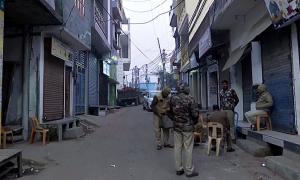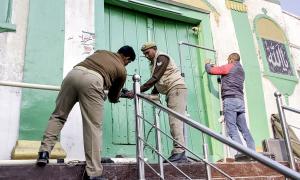Lamenting that considerable part of public debate was presently focused on short-term problems, Prime Minister Manmohan Singh on Friday asked the political leadership to understand the importance of education in the country's development.
"Unfortunately, a considerable part of our public discourse is focused on short-term problems and on issues pertaining to access to what is presently available. We are not devoting as much attention to questions of growth and development and to the challenge of a multi-fold expansion of opportunities," he said at the 150th anniversary celebrations of the Madras University.
"I urge all our political leaders to understand the central importance of education in the development of our country," he said, adding that expansion of opportunities should not compromise on the standards and outcome of education. Asserting that the focus should be on granting access to quality education to all deserving children, Singh said "India cannot realise its full development potential if the hitherto marginalised sections of society do not become active partners in the process of development. Education must contribute to the achievement of this goal."
Making a strong case for democratisation of education and pursuit of excellence, the prime minister said "an innovative India must combine both inclusion and excellence and it is wrong to see them as two separate and contradictory goals".
Stressing that a university always stood for "humanism, tolerance, reason and progress", Singh asked "if the temple of learning itself becomes a home of narrow bigotry and petty objectives, how then will the nation prosper or a people grow in stature."
He said institutions of learning stood for "the onward march of the human race towards even higher objectives. If the universities discharge their duty adequately, then it is well with the nation and the people."
Noting that the Indian subcontinent has been a land of learning since the dawn of civilisation, the Prime Minister said it not only gave birth to great and ancient languages like Sanskrit and Tamil, but also to great ideas in science and mathematics like the concept of zero and the binary system.
"If there was one fault with that culture, it was that opportunities for learning were not available to all," he said.
He said the government had not made heavy investments in all levels of education system to "transform our country in years to come."
"Our goal is to build an India where all our children are in school, all young adults have an opportunity to be professionally trained in marketable skills if they choose to, and all children can pursue intellectual excellence," Singh said.
In this context, he said special attention would have to be given to the education of the girl child and women. Congress President Sonia Gandhi, he said, has "called for making universal female literacy the cornerstone of our educational endeavour as it has the maximum multiplier effects on development".








More from rediff